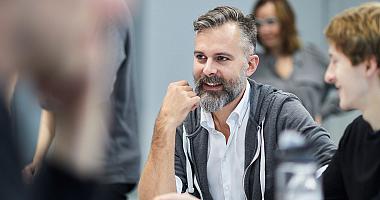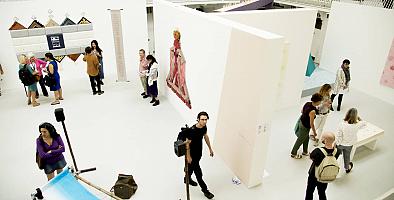Course information
Department
Length
1 year full-time or 2-3 years part-time.
Course overview
Immersive experiences, including virtual and augmented reality, are the most exciting new mediums to emerge in the 21st century.
They can transport you to a new world that feels as real as the physical one around you, creating a totally unique experience for the user. On this course, you’ll be working on a once-in-a-lifetime challenge: shaping and pioneering a medium that’s already having a major impact on our society.
Why study MA/MSc Virtual and Augmented Reality at Goldsmiths
- You'll have the chance to choose between two distinct pathways, depending on your interests. These are the 3D Graphics and User Experience Pathway and the Programming and Computer Science Pathway.
- For each pathway, you can choose to complete either an internship or self-directed research project.
- You’ll be creating virtual and augmented reality that is informed by both the technology and psychology of the medium, so you can create powerful experiences that make the most of its distinctive features.
- This technology is used in a huge variety of industries including medicine, advertising, journalism and mental health therapy. When you graduate you’ll have the skills to work in these industries, as well as in more traditional gaming and film roles.
- We treat virtual reality and augmented reality as interlinking technologies – you’ll be working in both areas and the various types of Mixed Reality that combine the two. You can also learn other areas of computing that can be applied to Virtual and Augmented Reality such as data visualisation, interactive art, games technology, machine learning and AI.
- This programme is co-led by two leading researchers in the area of XR research. You will be working with a strong team of 10+ XR researchers (Researchers and PhD students) from the SeeVR Research lab.
- As well as being taught by leading experts in VR/AR experience, you’ll benefit from our links to an extensive network of VR companies. We regularly welcome them to campus to deliver talks.
- We offer a work placement programme that will help kick-start your VR career.
- You’ll have access to a dedicated V&AR lab. The facilities will be updated each year to keep up with technology but they currently include a range of high-end head mounted displays including Oculus Rift, HTC VIVE Pro and Windows MR, each with high end graphics PCs. You’ll also have access to mobile VR set ups (Oculus GO) and a professional motion capture suite which is synchronised with an HTC VIVE for full body immersive experiences.
- Our general computing facilities include the HatchLab, our maker space that can be used for, among other things, fabricating custom VR input or output devices.
- We also offer an abridged online version of this course which you can try before registering for the full-time postgraduate course. Find out more on Coursera.
Contact the department
If you have specific questions about the degree, contact Marco Gillies or Sylvia Xueni Pan.





